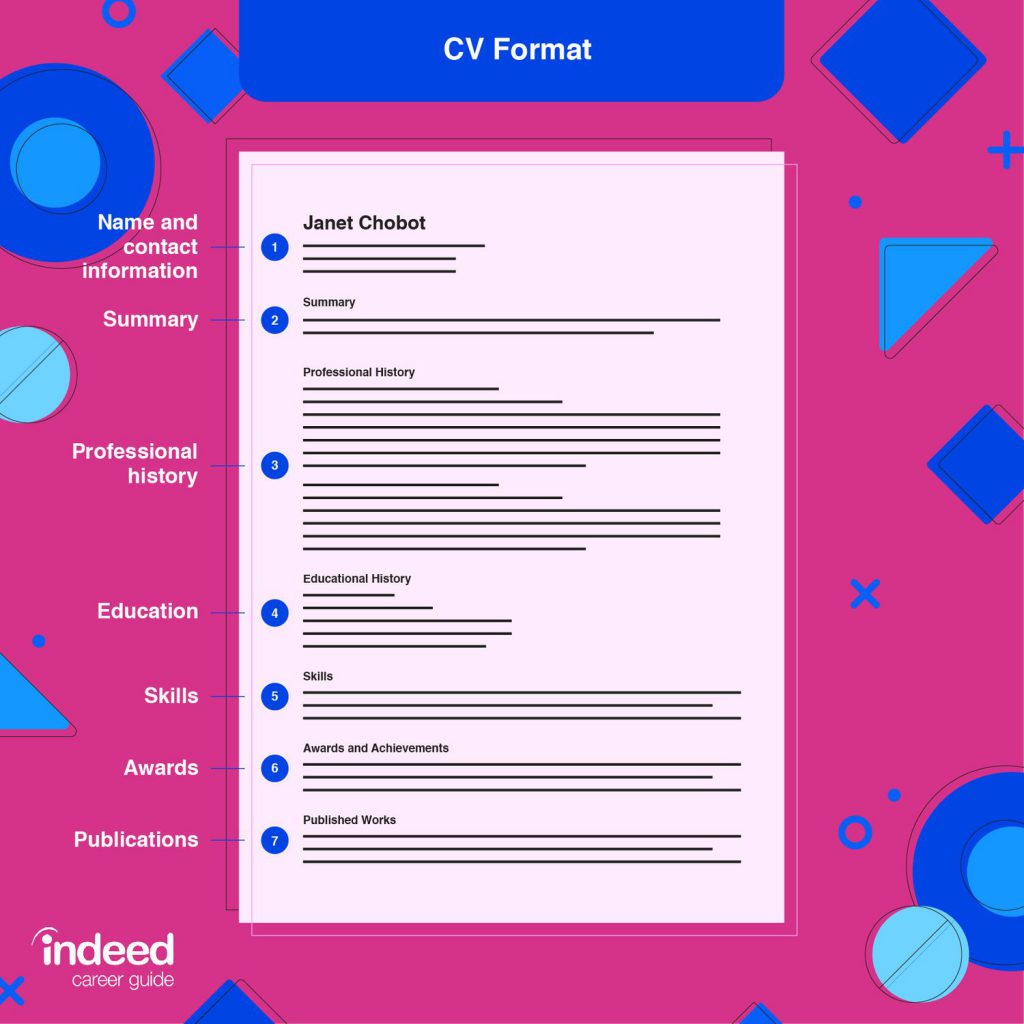Every industry has its own set of skills that it expects from its candidates. When we apply for a job, one of the first ways an employer assesses a candidate is through their Curriculum Vitae (CV). Just like every field has its own required skill set, how you present what your skills have equally differs. In general, industry CVs focus on aspects like work experience, core skills, and soft skills. When it comes to academic CVs, they primarily focus on publications, presentations, fellowships and awards, research experience. Academic CVs could also be longer than industrial CVs – up to 4 pages. In this article, get a detailed explanation of how to structure and write an effective academic CV.
The headings of an academic CV are slightly different from a typical CV. Here are the headings that should be included to structure it.
Personal information
Like in any other CV, start off with your full legal name, followed by your educational qualifications, then the institute you are affiliated with, in the next line. This is followed up by contact details like email address and phone. Include your links to your ORCID id, or LinkedIn profile if you have any.
You→ Good Resume →Job
Your Research Interests & Career summary
Write about 5 to 7 lines about your research interests and specializations any. Mention about the relevant research experience, along with any key findings and publications you have made. Also include information any fellowships and awards won, as well as any other notable achievements.
Educational Qualifications
Include all your educational qualifications in reverse chronological order. Include details like the institute, the degree, specialization, along with the thesis or dissertation completed in that duration, if applicable.
Is Your Resume Not Getting Shortlisted?
Publications
Make a list of all the key publications, preferably in reverse chronological order. This includes, peer-reviewed journal articles, books, book chapters, articles presented as prestigious conferences, non-peer-reviewed articles, and reports. Patents can also be mentioned in this section. Publications which are still undergoing the publishing process can also be mentioned as “in-press”, or the stage they are in.

Research experience
Write about your research experience and positions you’ve worked in, including relevant internships. Highlight about research relevant to the research interest indicated in the summary you’ve mentioned in the beginning of the CV. Don’t forget to write about any key findings and achievements in the positions.
Awards, Honors & Recognitions
Mention any awards, honors or any other recognitions you got for the work you’ve done, with the year and the awarding institute.

Funding & Fellowships
This includes any grants for projects, fellowships (like CSIR-JRF, UGC-JRF etc.), scholarship and prize money. Mentioning about funding is important because it shows the weightage and importance of your research, as well as the efforts you’ve put in.
Right Skill = Bright Future
Teaching, Administrative & Professional experience
If you have any gaps in your CV, mentioning such experience would justify the diversity of your capabilities. However, make sure the positions are relevant to your research interests. Administrative experience includes organizing events, writing a newsletter for a research institute. Working in an industry counts as professional experience.

Other qualifications and skills
List any other courses (MOOCs, certificate courses) you’ve done, as well as technical skills (laboratory techniques like gas chromatography, or statistical data analysis using professional software etc.).
Professional memberships
If you are part of any scientific society, or any other professional group, you could mention about the same.

Conferences & Seminars Attended
On priority, write about the ones where you have presented a paper, or actively participated by giving a speech or was part of a panel discussion. The ones you just attended can also be mentioned.
Appendices
Over time, the number of publications, conferences & seminars attended would increase, significantly making your CV longer. To make it shorter and easier to go through, appendices could be made to provide complete details of the same, with the key highlights being mentioned in the main body of your CV. Other things like short research excerpts can also be included.








